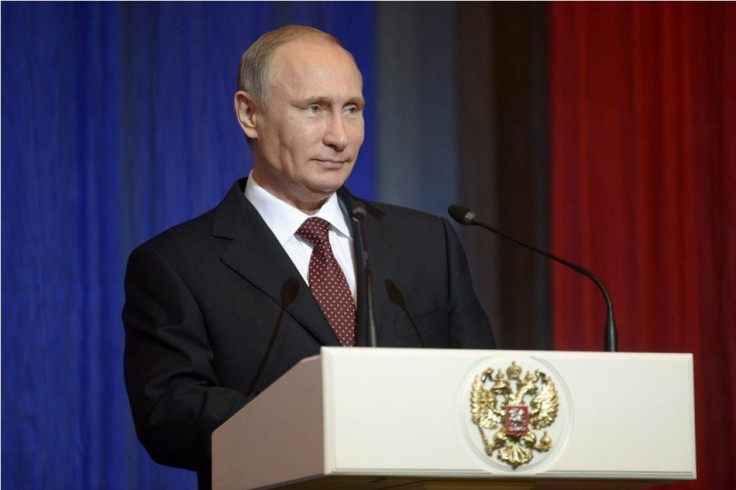Vladimir Putin Declares Non-Involvement In Political ‘Games’ As Russia Focuses On Military-Building

Russian President Vladimir Putin has declared his country is not threatening anyone as it wants to stay out of political intrigues despite repeated accusations from the West. In a meeting with military chiefs last Nov. 26, Mr Putin said Russia has no plans of getting involved in "geopolitical games, intrigues and conflicts."
The Russian president gave more importance to maintaining the sovereignty and integrity of the country and its allies. Mr Putin said a unified and integrated approach is critical in order to address issues involving national defence, according to RT News.
He also mentioned that in recent years, Russia has completed updated its military management and developed a complete system of military planning. Mr Putin had met with Defence Minister Sergey Shoigu earlier in the week, together with GHQ head Valery Gerasimov, to discuss more plans for military development.
According to reports, top Russian officials talked about deploying military units in Crimea and forming a new unified strategic command in the Arctic from Northern fleet of Russia starting Dec. 1. Mr Putin had stressed at the meeting that the development of arms and services remains the top priorities of military construction.
Russia's defence minister had revealed last October that Russia's armed forces are in the process of rebuilding two northern bases in the Franz Josef Land archipelago and Novosibirsk Islands. He said Russia will finish building its network of radar stations in the Arctic in 2015.
Meanwhile, the West remains challenged by Russia's "ambiguous warfare" as strategists continue to struggle with a threat that hides behind a cloak of "deniability." In a Reuters report, NATO is now considering how to defend against such techniques if Mr Putin tries the same strategy it allegedly used in Ukraine to Baltic member states of Latvia, Lithuania and Estonia.
Previous reports said NATO has sent tanks and planes from the U.S. and other allied countries to show the organisation's commitment of defending all member states. According to military experts, Russia has found an unconventional but effective strategy in targeting non-NATO member Ukraine as it combines it with a international show of force not seen since the Cold War.
Before the G20 summit in Australia, international media reported that Russian warships have been deployed near the Australian coast with a nuclear submarine as an escort. Nuclear bombers have been spotted flying over western Europe and the Gulf of Mexico, Western analysts said. They believe Russia is out to reassert its influence over nearby countries in an attempt to remind the U.S. and its allies of "cataclysmic consequences" if ever military force was used.






